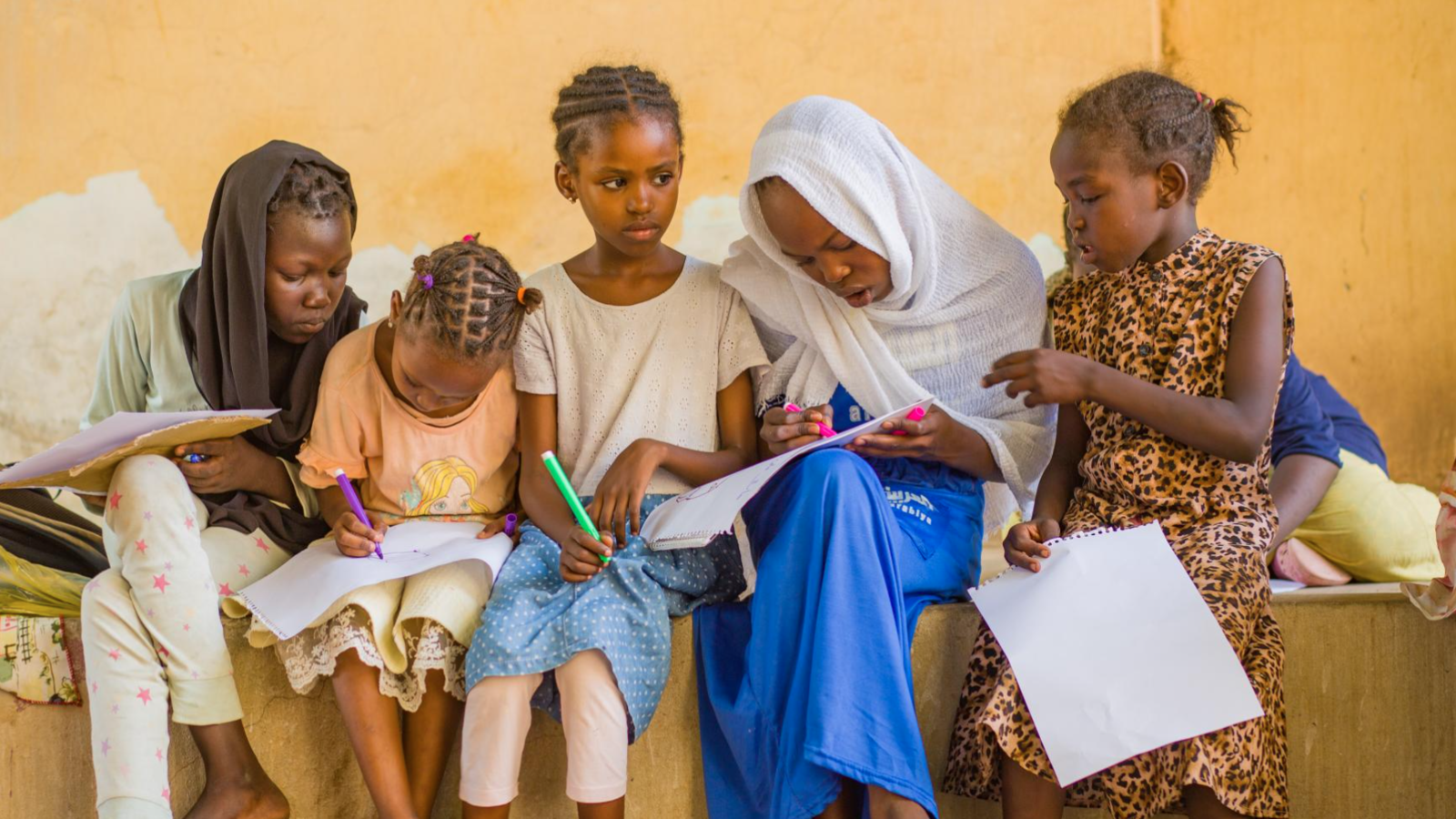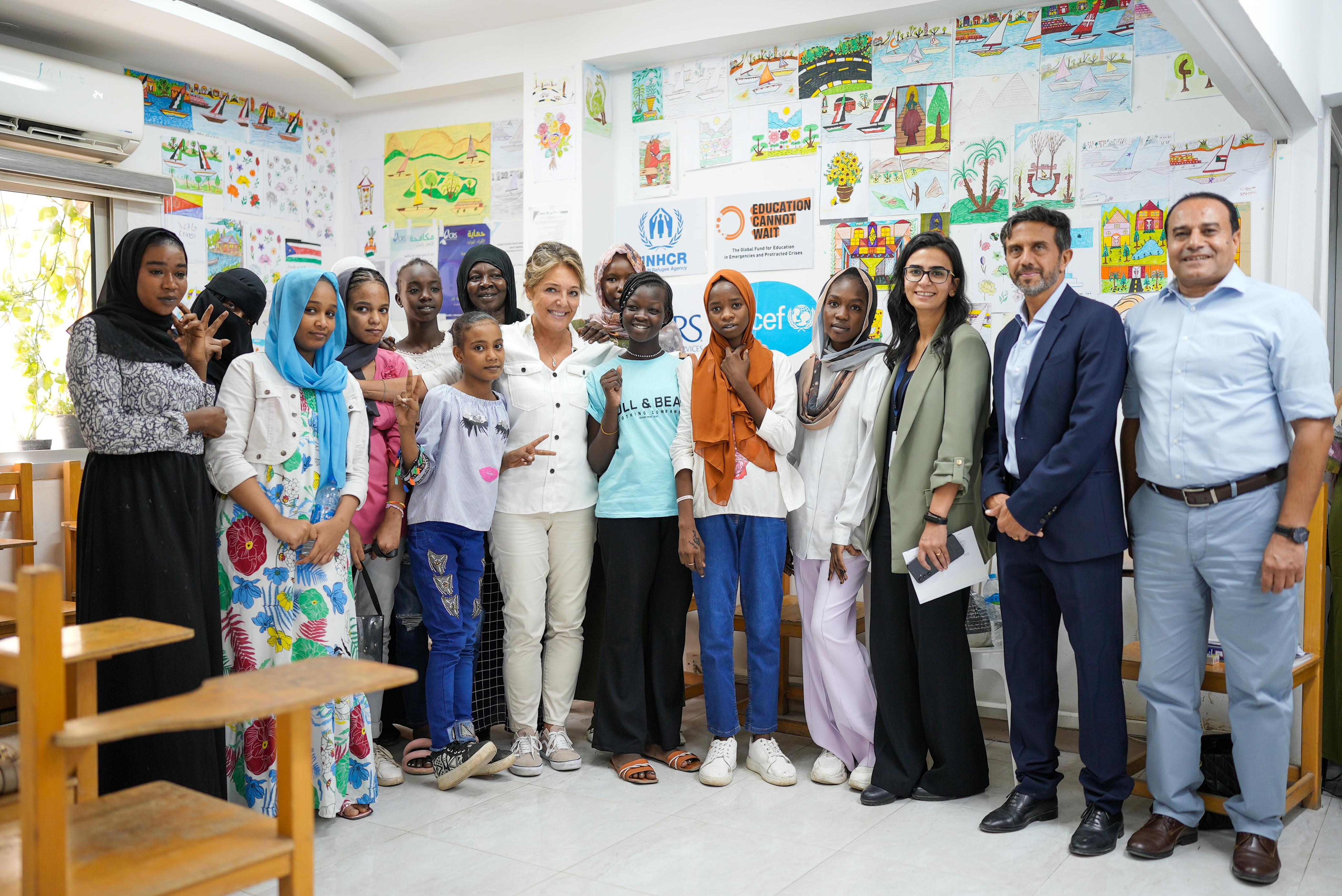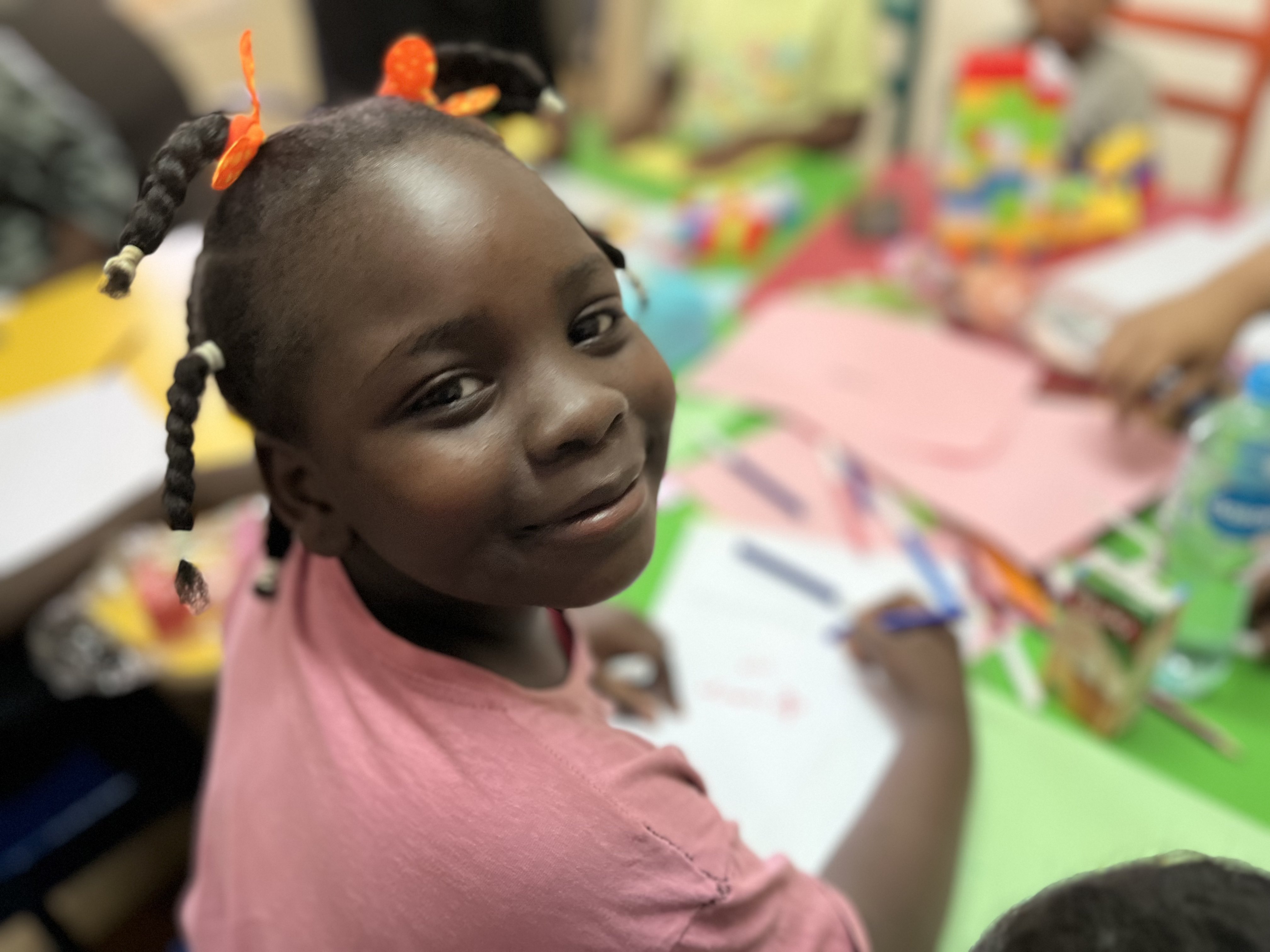Supporting access and continuity of education for refugee children and adolescents in Egypt.
ECW in Egypt
Egypt is the largest host country of Sudanese refugees forced to flee the war in Sudan. Since the outbreak of conflict, more than a million Sudanese refugees have fled into Egypt, including more than 135,000 school-aged children and adolescents. Education Cannot Wait (ECW) has been supporting the refugee response in Egypt since the start of the Sudan crisis. ECW’s First Emergency Response in the country is supporting refugee girls and boys to participate in non-formal education with the goals of transitioning into formal education. Investments also support cash grants, social cohesion with host communities, and mental health and psychosocial support and well-being for students and teachers.
Geographical Areas of ECW-funded Interventions
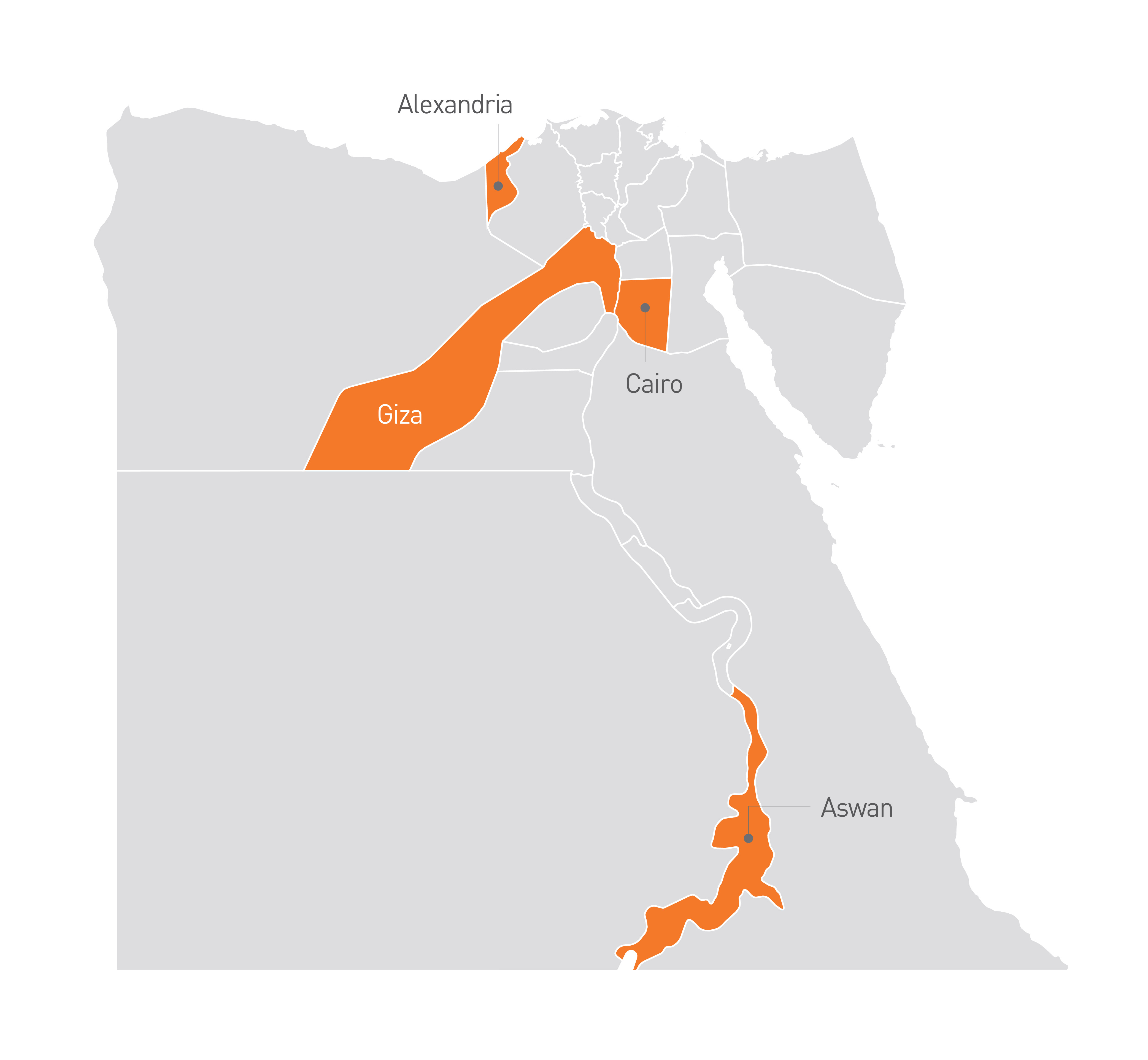
Map Disclaimer
Investments
Programme Info
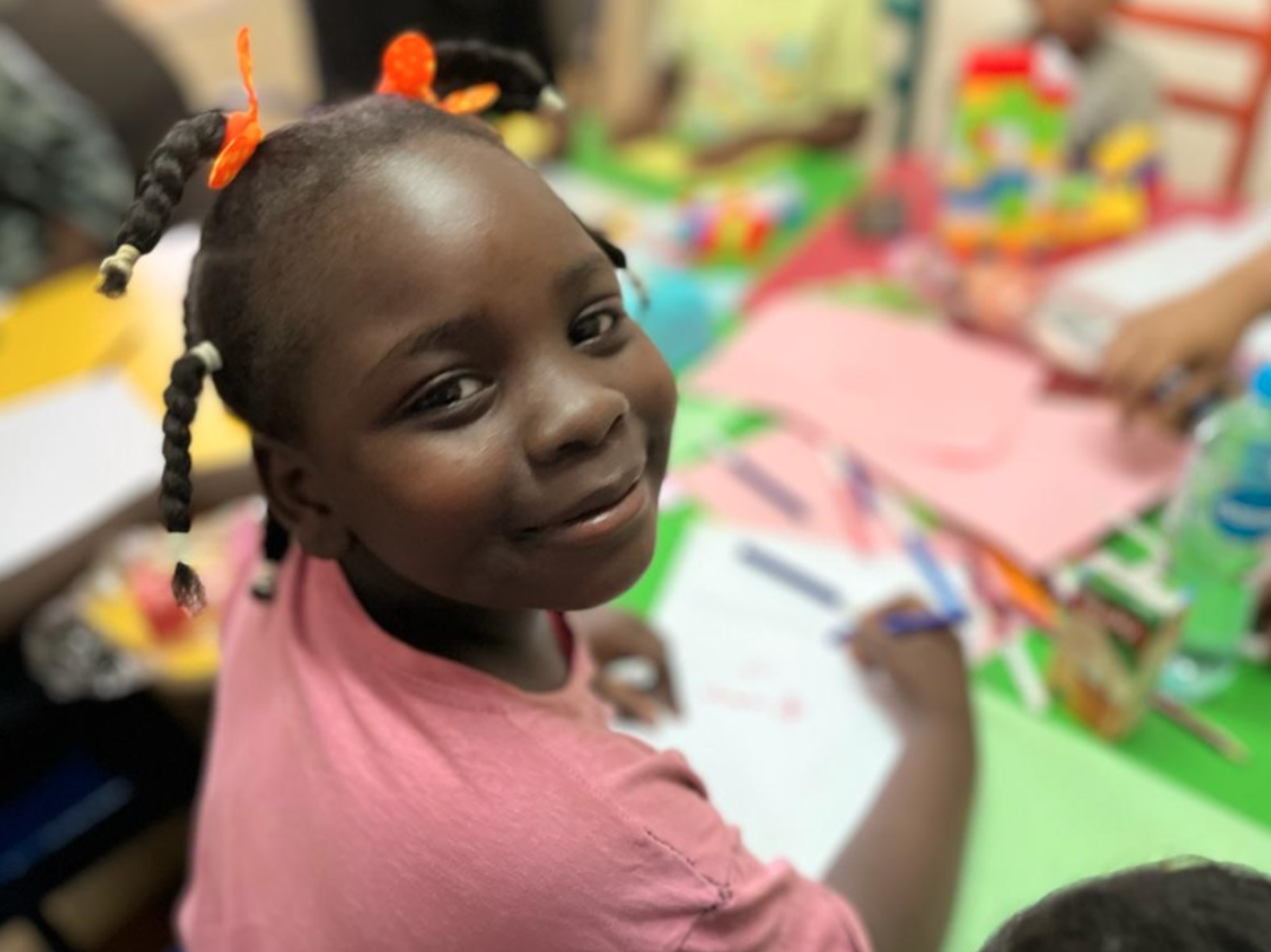
ECW has been supporting the refugee response in Egypt since the start of the Sudan crisis. Over half of the newly registered Sudanese refugee population is female and the majority originates from the capital Khartoum, where school enrollment rates were historically higher than in some other states in Sudan. More than half of Sudanese children in Egypt are now out of school.
Most Sudanese refugees are residing in urban areas where schools are already oversubscribed, and they are impacted by rising inflation. Refugees have access to the public education system on an equal basis with Egyptian nationals, but these access arrangements require a valid residency permit, which can take time to obtain. While waiting for the necessary paperwork, many Sudanese refugee families choose to enrol their children in Community Learning Centres which follow the Sudanese curriculum but are not recognised by the national authorities.
Children and their families face a whole host of protection issues. Families have been separated with a significant number of unaccompanied and separated children, and increased number of female-headed households. Many children have experienced trauma and new arrivals, especially women and girls, are vulnerable to violence and in need of specialist child protection and gender-based violence services.
ECW’s First Emergency Response in Egypt is reaching children and adolescents in the Aswan, Cairo, Giza and Alexandria Governorates. ECW is supporting refugees to participate in non-formal education to transition into formal education when they are able to do so. The Fund's support in Egypt also focuses on cash grants, social cohesion with host communities, and mental health and psychosocial support and well-being for students and teachers.
Most Sudanese refugees are residing in urban areas where schools are already oversubscribed, and they are impacted by rising inflation. Refugees have access to the public education system on an equal basis with Egyptian nationals, but these access arrangements require a valid residency permit, which can take time to obtain. While waiting for the necessary paperwork, many Sudanese refugee families choose to enrol their children in Community Learning Centres which follow the Sudanese curriculum but are not recognised by the national authorities.
Children and their families face a whole host of protection issues. Families have been separated with a significant number of unaccompanied and separated children, and increased number of female-headed households. Many children have experienced trauma and new arrivals, especially women and girls, are vulnerable to violence and in need of specialist child protection and gender-based violence services.
ECW’s First Emergency Response in Egypt is reaching children and adolescents in the Aswan, Cairo, Giza and Alexandria Governorates. ECW is supporting refugees to participate in non-formal education to transition into formal education when they are able to do so. The Fund's support in Egypt also focuses on cash grants, social cohesion with host communities, and mental health and psychosocial support and well-being for students and teachers.
Programme Components
- Increased access to and continuity of quality education for newly arrived refugee learners. To increase access to education by reducing the financial burden on households associated with school enrolment. Students with disabilities will receive a higher-value grant, which takes into consideration the additional costs incurred by families who require access to additional support services and adapted transportation.
- Enhanced quality of education. Non-formal education through remedial and catch-up classes will be established to support children whose education was disrupted due to conflict and subsequent displacement and who may be unable to immediately enroll in public schools.
- Equity, social cohesion and wellbeing is prompted through education. Social cohesion between refugees and hosting communities will be fostered through joint activities in schools that will include a focus on promoting the well-being and resilience of children as well as life-skills development through joint activities that allow for play, artistic expression and sports.
- Strengthened capacity to support refugee inclusion in the national system. To support the development of an inclusive education curriculum for post-primary grades. This curriculum will not only consider the needs of those living with disabilities, but also the needs of refugee children who enter the national education system, and promote school and classroom-based approaches that create a welcoming and supportive environment for all.

